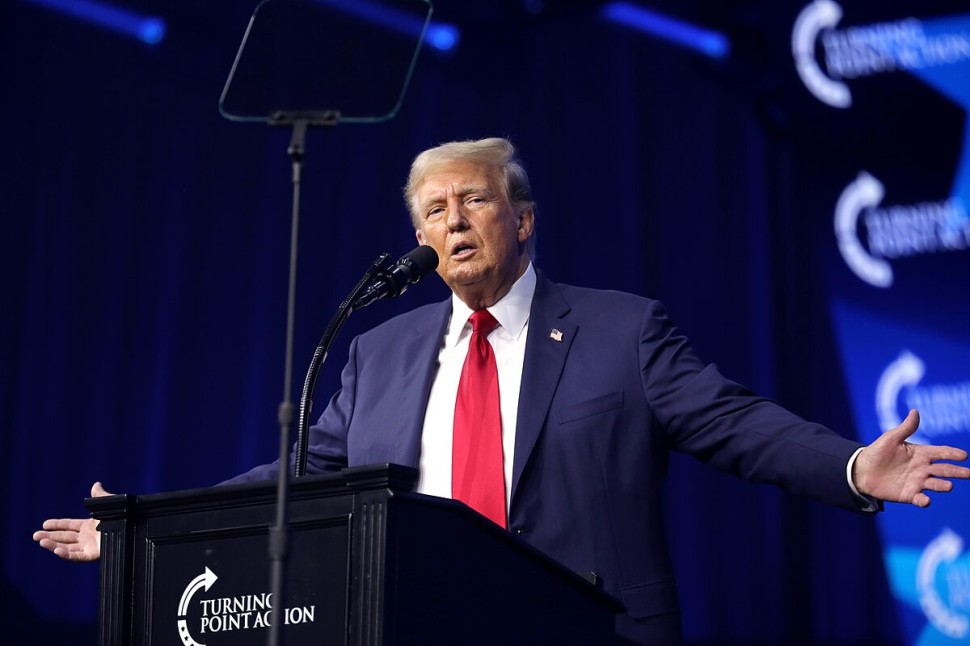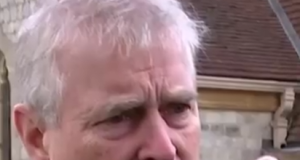Controversial policing tactics, which were previously ruled unconstitutional, are back in the spotlight. Now, they're key in former President Donald Trump's campaign. He's eyeing the upcoming election. Trump supports bringing back stop-and-frisk. This method lets law enforcement detain and search people for weapons. According to Trump, this plan is a straightforward approach to combat crime effectively.
However, stop-and-frisk is not without its critics. This measure has left a deep sense of mistrust among Black men who have disproportionally borne the brunt of the policy. Experiences of unprovoked confrontations with law enforcement have become all too common, leaving indelible marks on individuals like Travis Hunter, who recount moments of helplessness and violation at the hands of the police.

Trump's Call for Tough-on-Crime Measures
In his push to attract more Black voters, Trump is taking a firm stance on crime, aiming to draw those who find President Joe Biden's policy decisions lacking. Trump's approach includes reaching out to prominent Black cultural figures and focusing on economic improvements claimed during his term. At the same time, he advocates for a policy historically shown to target Black communities disproportionately, specifically Black men.
Trump's proposal suggests a policy trade-off. In return for bolstering public safety, local law enforcement agencies would once again employ practices that have sparked widespread criticism and strained community relations.
Law Enforcement and Community Tensions
Stop-and-frisk sparks a lot of debate. The focus is on its effectiveness versus its ethics. Some support it. One is former Police Commissioner Ray Kelly. He says proactive policing, including stop-and-frisk, saves lives. Critics see it differently. They worry about civil liberties. They ponder the psychological impact on communities.
Surveys indicate elevated stress and anxiety levels among men subjected to stop-and-frisk, further cementing the argument against the policy. Legal challenges culminated in a federal judge's ruling in 2013, declaring the practice unconstitutional.
Yet, Donald Trump's agenda to reintroduce stop-and-frisk remains firm. He posits that, with proper training, such strategies can be honed to avoid targeting innocent individuals. The challenge lies in ensuring that renewed methods of policing do not perpetuate racial discrimination or erode the public's trust in law enforcement.
Stop-and-Frisk Impacts
Rodney Diggs is a civil rights attorney in Los Angeles. He highlights a contradiction. Courting Black voters is Trump's goal. Yet, he endorses a policy. This policy negatively impacts them disproportionately. Similarly, Yasser Payne, a professor of criminal justice, points to a deeper cultural conflict as stop-and-frisk perpetuates harmful biases against Black males.
With policing under the jurisdiction of state and local governments, the feasibility of a federally mandated stop-and-frisk policy remains questionable. Yet the influence of federal funding might serve as a strong incentive for some police departments to align with Trump's directives, despite opposition.
As Trump's position continues to garner support and criticism alike, community members and legal experts weigh in on the broader implications of reintroducing stop-and-frisk. With more than 2 million Black men having already experienced this form of policing, the debates surrounding it are far from over.
Do you believe reintroducing stop-and-frisk could lead to better crime management, or does it risk infringing on civil liberties and deepening racial divides? How should policymakers address the concerns of both law enforcement effectiveness and community trust? Share your thoughts and engage in the discussion.




